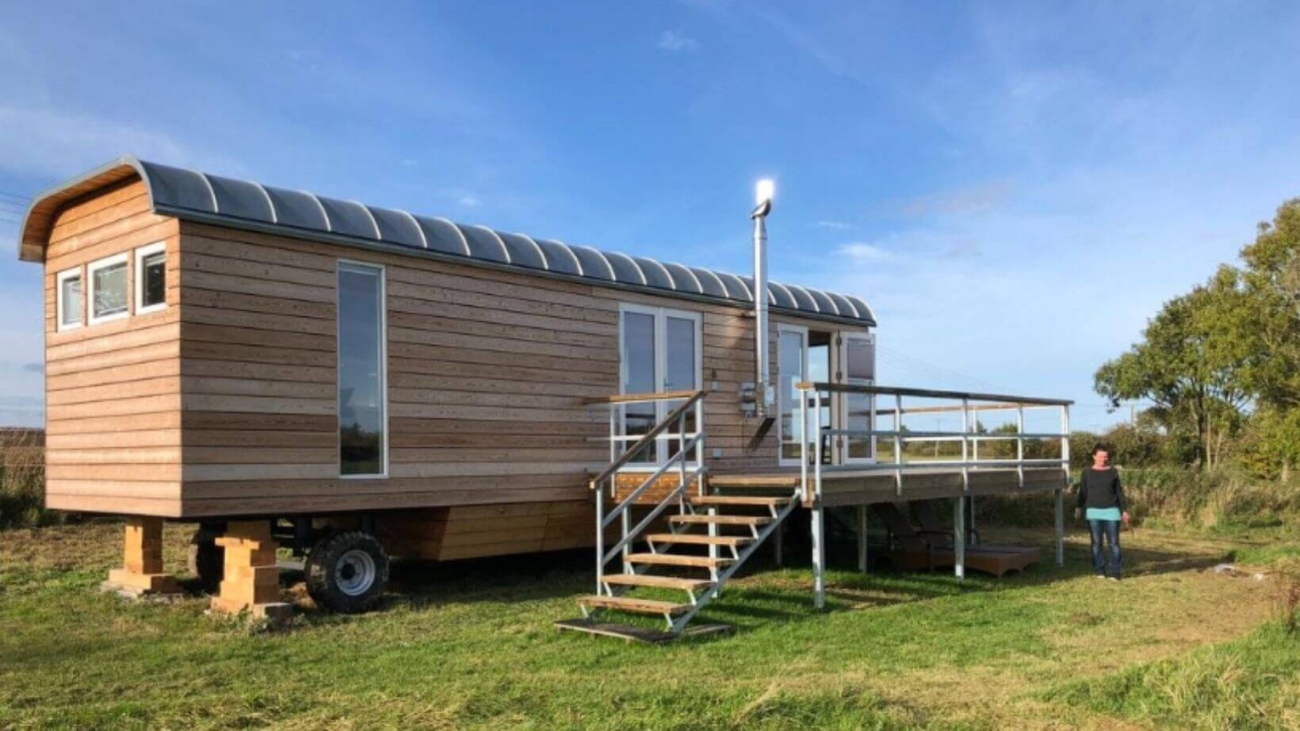Mobile homes have gained popularity over the years as a flexible, affordable housing option. While they offer several advantages, including lower costs and easier relocation, many individuals are unsure about how they differ from traditional houses.
Mobile homes are built according to federal regulations, which are distinct from the building codes that govern traditional houses. Read on to explore the various aspects that set mobile homes apart from their traditionally built counterparts.
The Construction Process
The construction of mobile homes follows a different process compared to traditional homes. Mobile homes are built in a factory setting, where the assembly line promotes expedited production. Traditional homes are built on-site, where weather and permits can introduce delays. The factory-based approach used for mobile homes results in more affordable pricing.
Mobile homes must meet strict federal standards that dictate their construction, safety, and design. Manufactured homes should be safe and durable and provide a sense of reliability. The streamlined production process allows for customization options at a lower cost, making mobile homes attractive to many buyers.
Maintenance and Repairs
Maintenance and repair requirements may vary between mobile homes and traditional houses. Mobile homes require ongoing upkeep to maintain their condition if situated in challenging environments. The materials used in mobile home construction may be more vulnerable to weather-related wear and tear compared to those in traditional homes.
As a potential seller, individuals worry about how to approach the market if they choose to sell a mobile home. If you aim to sell your Palatka mobile home hassle-free, connect with local companies that specialize in buying mobile homes as-is for fast cash. This approach avoids the complex process of repairs and real estate agents and streamlines the transaction. Knowing the nuances of maintenance can empower buyers and sellers to navigate mobile home ownership.
Financing and Insurance Variability
Mobile homes may not qualify for the same mortgage loans as traditional homes, which can complicate the buying process. Many lenders treat mobile homes as personal property rather than real estate, affecting the types of loans available. Only certain manufactured homes that meet specific criteria can qualify for permanent foundation loans, which are favored due to their lower interest rates.
Mobile homes frequently require specialized coverage, listed as manufactured home insurance. Insuring mobile homes may involve different risks compared to traditional house insurance, leading to varying rates and coverage options. Buyers must conduct thorough research to understand the implications of financing and insurance when considering a mobile home purchase.
Land Ownership and Placement Issues
A prominent distinction to consider is land ownership in relation to mobile homes. Traditional houses are purchased with the land included in the sale, and mobile homes can be placed on owned land or within mobile home parks. Many buyers choose to position their mobile homes in rented lots or communities, which can lead to additional fees and regulations that must be followed.
Mobile home park owners may enforce rules that affect day-to-day living, something that traditional homeowners rarely encounter. This distinction can impact resale values and potential appreciation. Mobile homes placed on owned land may appreciate in value, and those located in parks may face depreciation. The choice of placement influences the lifestyle and community dynamic surrounding mobile homes.
Government Regulations and Zoning Laws Impact
Government regulations and zoning laws present challenges for mobile home buyers. Different areas have specific regulations regarding mobile home installation, which can affect where and how residents can place their homes. Zoning laws dictate permissible land use, which can influence the ability to rent or sell mobile homes in certain places. Being aware of local regulations can save prospective buyers time and hassle and help them comply with requirements.
As mobile home regulations vary from state to state, recognizing these differences is necessary when transitioning between areas.
Buyers must adhere to the appropriate guidelines to avoid fines or complications during ownership. These factors will empower individuals to navigate zoning and regulatory frameworks more effectively.
Community Living and Social Aspects
The social aspects and community structure around mobile homes differ from traditional residential areas. Mobile home parks provide a distinct sense of community and shared resources, which can promote socialization among residents. Many people find comfort in knowing their neighbors and having a close-knit community. Traditional neighborhoods may lack this communal element, presenting a more dispersed living situation.
Mobile home communities are not without their challenges. The dynamics of living in a shared space may not appeal to everyone. Different-aged communities may promote different atmospheres, and not all parks offer the same amenities or sense of belonging.
The unique aspects of mobile homes showcase how they differ from traditional houses in a multitude of ways. Construction process, financing, insurance, land ownership, maintenance, resale value, regulations, and community living all contribute to the understanding of what mobile home ownership entails. With thorough research and awareness, individuals can confidently navigate their housing options.


